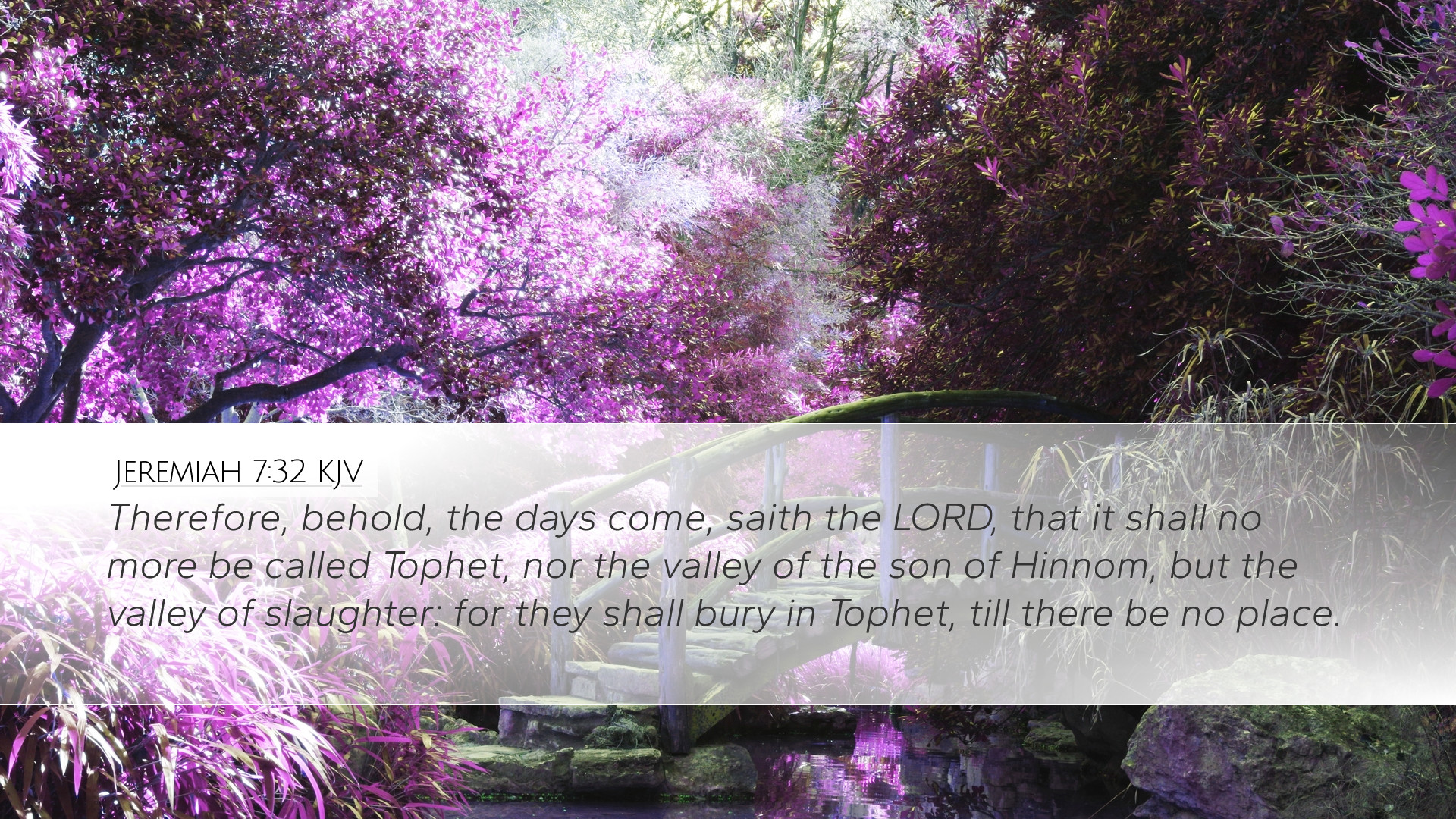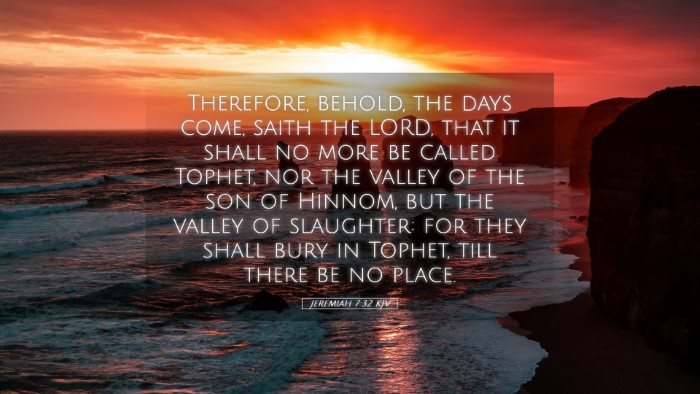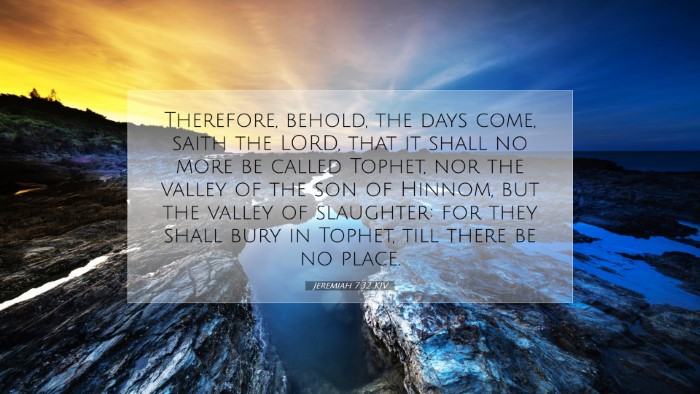Commentary on Jeremiah 7:32
Jeremiah 7:32 states:
"Therefore, behold, the days come, saith the Lord, that it shall no more be called Tophet, nor the valley of the son of Hinnom, but the valley of slaughter: for they shall bury in Tophet, till there be no place." (KJV)
This verse occurs in a context where the prophet Jeremiah is delivering a stern warning against the practices of idolatry and child sacrifice that had become prevalent in Judah. It underscores the grim reality of divine judgment, firmly rooted in the contrasting imagery of destruction and hope.
Context and Historical Background
According to Matthew Henry, the chapter serves as a pivotal message indicating the impending judgment on Judah due to their continued disobedience and rejection of God's laws. The valley of Hinnom, known as Tophet, was notorious for being a site where the people sacrificed their children to the pagan god Molech.
Adam Clarke emphasizes that the term "Tophet" derives from an Aramaic word meaning "drum" or "to burn," signifying the sounds associated with the sacrificial rituals. This context demonstrates the depth of Israel's apostasy from the true worship of Yahweh.
Divine Anger and Judgment
In verse 32, God declares a transformation of Tophet from a place of idolatrous worship to a valley of slaughter, which highlights the severity of His judgment. Albert Barnes points out that this impending judgment is directed not just towards the pagans but also towards the backslidden people of God who have forsaken Him.
This profound shift illustrates the metaphor of reversal commonly found in Scriptures, where places of so-called worship become the sites of judgment and calamity. The prophetic voice here serves as a reminder that what had been deemed sacred became a grave marker of Israel's spiritual decay.
Theological Implications
The economic loss of life for idle worship raises several theological implications that are important for pastors and theologians today:
- Judgment on Apostasy: The text serves as a grim reminder of the consequences of apostasy and the importance of faithfulness to God.
- God's Sovereignty: It affirms the sovereignty of God in punishing not just the heathens, but also His covenant people who turn away from Him.
- Warning Against Idolatry: There is a stark warning against the modern-day idolatries that could lead one into similar paths of destruction.
- Hope for Repentance: Underneath the stern warning is an undertone of hope; by realizing the gravity of sin, God's people may turn back to Him.
Moral and Ethical Considerations
This verse compels contemporary readers to reflect on the moral and ethical implications of their actions and worship practices. Matthew Henry articulates this by urging believers to examine their hearts and ensure they are not harboring idols that may lead them away from God.
Adam Clarke further emphasizes the seriousness of sin: “Those who worship at the altar of worldly success or personal ambition rather than at the feet of Christ are in danger of facing their own Tophet.” This idea aligns closely with modern interpretations where selfishness and greed take precedence over divine commitment.
Prophetic Warning and Future Restoration
Finally, while the verse serves as a prophetic warning, it also foreshadows the ultimate restoration of God's people. Albert Barnes highlights that although destruction is imminent, the narrative of Scripture continually leads towards redemption and reconciliation.
In conclusion, Jeremiah 7:32 serves as both a startling warning of judgment against sin and a profound call towards repentance. For pastors, students, theologians, and scholars, it illustrates the need for persisting faithfulness and vigilance in the face of contemporary cultural pressures that may lead to spiritual detours.


